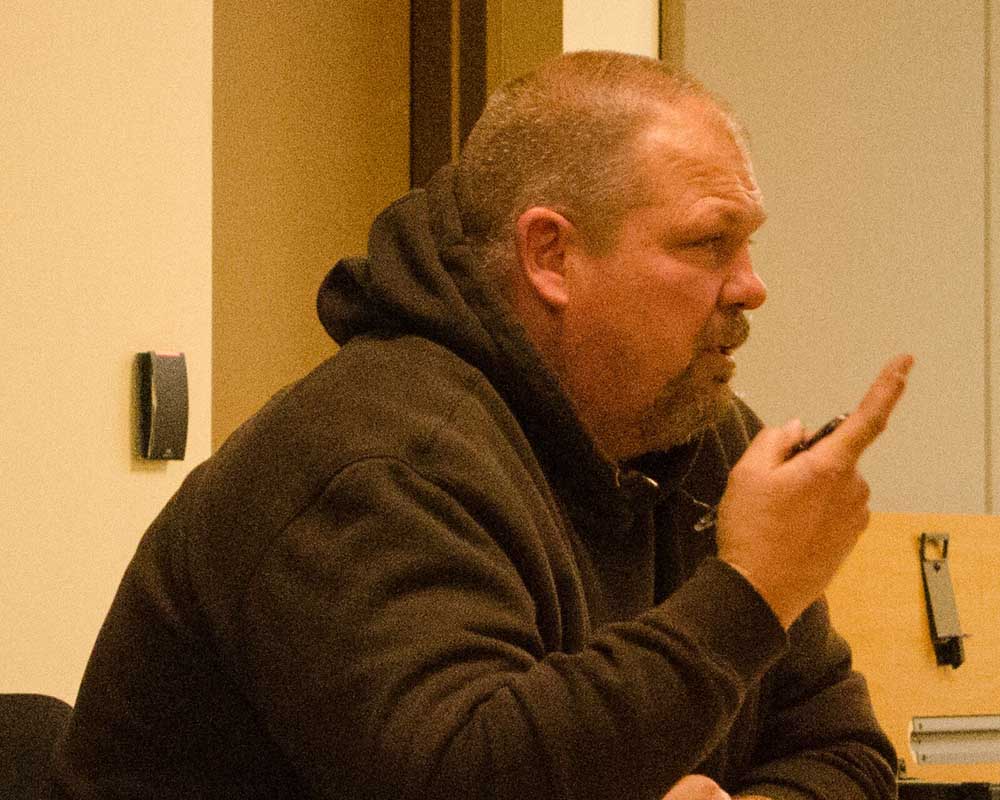Malheur National Forest to award another long-term stewardship deal plus other contracts
Published 10:15 am Wednesday, February 16, 2022

- Tim Rude, the owner of John Day-based Rude Logging, serves on the Grant County Natural Resource Advisory Committee.
JOHN DAY — The Malheur National Forest will issue another long-term stewardship deal in an open bid process starting in November, but it will also use another contracting mechanism to bring in additional independent contractors and add flexibility in meeting forest management goals and budget constraints.
Malheur National Forest Supervisor Craig Trulock announced the agency’s decision at a Thursday, Feb. 10, meeting of the Grant County Natural Resource Advisory Committee at the Grant County Regional Airport.
With the current long-term contract set to expire early next year, federal forest managers have been trying to decide what form stewardship contracting on the forest should take in the future.
While Trulock said he had been leaning toward awarding another long-term contract, he has been contemplating some changes in the next stewardship deal, such as decreasing the guaranteed 70% of timber volume coming off the forest to between 30 and 50%.
The 10-year stewardship contract awarded to Iron Triangle in 2013, estimated to be worth roughly $69 million, expires in March of 2023.
The John Day logging company’s current deal is what’s known as an integrated resource service contract, a mechanism that Trulock said has both pluses and minuses.
With 70% of the total volume of Malheur National Forest timber sales going to the program, Trulock said, that provides a high level of predictability for the contractor while also guaranteeing a steady supply of logs for Malheur Lumber’s John Day sawmill.
But, Trulock said, having so much of the national forest’s discretionary timber revenue committed to the stewardship contract could create a problem for the agency’s budget.
Additionally, despite the fact that the stewardship contract was awarded through a competitive bidding process, the 10-year deal has prompted criticism from some who feel that Iron Triangle has profited at the expense of smaller rivals.
One way to remedy the perception of winners and losers would be to offer smaller, independent contractors what the Forest Service refers to as blanket purchase agreements, which can cover the same sorts of services as the stewardship contract, but with more flexibility in the terms of the agreement. For one thing, Trulock said, the agency could offer shorter contract periods and bring in more contractors.
Mark Webb, executive director of Blue Mountain Forest Partners, pointed out that there is a tremendous amount of risk associated with a long-term stewardship contract. He pointed out that with a stewardship contract, most task orders run on a two-year timeframe.
“So not only do they have to get all of the commercial harvesting done,” Webb added, “but they’ve got to get all the service work associated with it, too.”
Tim Rude, the owner of John Day-based Rude Logging, was one of the contractors on the original stewardship proposal to work with Iron Triangle. At the Feb. 10 meeting, he asked who would ultimately decide what company gets the long-term contract.
Trulock said the Forest Service’s national procurement office would make that decision. Trulock told the Eagle in a phone interview that his role would concern what goes into the package as far as finances and commercial timber volume.
The plan, Trulock said, is to open the bidding process in November.




